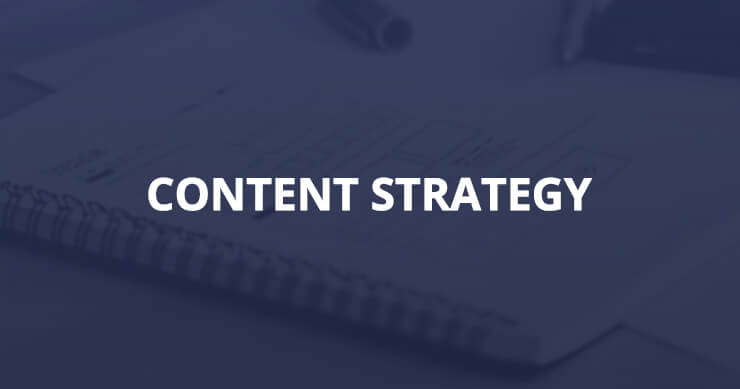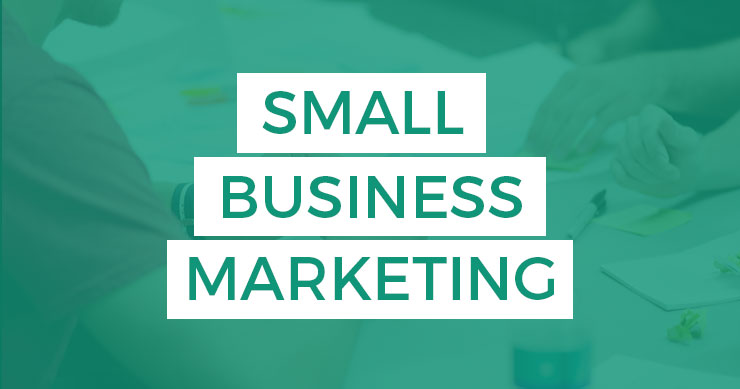Hey kids! You know how when you were little and your parents sent you off to summer camp to run around, play and meet new friends? This is pretty much what attending BlogWorldExpo is like for me. And by “pretty much” I mean “zomg, I love it and never want to leave!”.
We’re just about wrapping up Day 1 in Vegas so here’s a chunk of what you missed by not attending. There’s a lot of info so you may want to grab some coffee first. You may also want to grab a plane ticket because BlogWorld is awesome and I can’t wait for tomorrow.
Real Estate Social Media ROI: What, How, Why
Yes, that does say real estate. Apparently that’s what the ‘RE’ in the REBlogWorld track stands for. Who knew? Oh…everyone? Fine.
Even though I don’t care about real estate (I’ll never afford a house), this session gave a great reminder that it doesn’t matter WHAT industry you’re in, we’re all looking for ROI in social media. So how do you get it? That was the question posed to speakers Jim Marks, Sherry Chris, Mike Simonsen, and Dan Green.
Jim Marks noted that social media ROI is important only to the point where you can call on that influence for business. Mike commented that the ROI on social media isn’t just about dollars, it’s about establishing a persona and expertise so that people want to do business with you. That’s a lot more compelling than a dollar-focused return. The effort in or the expertise in is not something that you can divide by to get a percentage return. [I think I got up and started dancing when he said that. Or maybe I just screamed in agreement. Either way it was exciting.]
Obviously, there are opportunity costs involved with social media. I mean, you have to consider everything else you could be doing with your time. Is it more effective to be knocking on people’s door? Is it more effective to be doing direct mails? Is it more effective to be spending time with loved ones and family (blasphemy!)? What is your time worth and is social media generating a quantifiable dollar return for you? If you’re not making money, you shouldn’t be doing it.
Social media should be used with a strategy. If you can’t measure it, you don’t have a strategy. You have manage your time and track your sphere of influence. Mike said he’s a proponent of using a “gut feeling” to calculate your ROI. Dan said it’s a matter of how much time are you spending vs. how much you’re making. He spends 13 hours on social marketing a week. That’s 594 hours year to date. He makes 245 dollars an hour for the time he spend blogging. It takes a long time to get to that point. People tend to think of ROI as influence when they don’t have income to build against. It took him 18 months to get his first lead through social media. You have to have patience. Awesome!
How do you measure blogging? Inbound inquiries. Unique visitors to the Web site. Traffic. Conversions. You need to become a personality that people are drawn to.
Tools for Non Profit Organizations
This was probably my favorite session of the day. It just freakin’ feels good to use social media in a way that empowers great causes. Oh, and did you know that today is Blog Action Day? Maybe you should learn a little bit about Care. Just sayin.
Speaking on this one were James Sutandyo, Scott Henderson (MediaSauce), Judy Chang (PayPal Nonprofit Vertical), David Levy (Social Vibe) and Justin Perkins (Care2Team). Here’s some of what they shared.
Tips for how to raise funds:
- Tell a compelling story: There are people out there who are dying to be a part of something. Even if it’s not personal, everyone has the same heart. That’s what you want to appeal to.
- Tie donation widgets to specific fund raising calls: Don’t just donate to a charity, donate to a project within the charity.
- Have a feedback loop for recipients
- Have a hard stop date for a campaign or cause
- Frequently engage with your donation page: It’s the frequency in which you engage on a fan page is what brings donations. People don’t donate on pages that are stale. You need regular updates.
- Swap email lists: Find an organization that is similar to yours and swap email lists. The environmental sector is really good at this. I was a bit worried when this was suggested, but Justin noted a study that found there’s no negative long term impact of doing this.
- Appeal to ego
Think of ways to disrupt people’s attention so there are lots of small mentions instead of one large campaign. Not everyone will care what you’re raising money for because there’s an over-saturation of campaigns right now and consumers are getting a little tired of it. Don’t be afraid to collaborate with another nonprofit in the same area. You’ll have more success if all the cancer charities came together and did one campaign than if they tried to do them on their own. [This sentiment was echoed in the Internet Marketing for Smart People session covered below. That means it’s especially true and smart.] There’s a definite lack of attention out there so the more you can collaborate with people, the better.
It’s not about the complexity of your tools, it’s about the simplicity of your strategy. [Greatest advice ever. For absolutely everything.]
People want to be involved in a movement. The companies that will thrive are the ones that figure out how to tell stories and engage people in that story. Make the company the mentor and the individuals/masses the heroes. [Love it.] Your story needs to trigger compassion. Identify on an individual level, how “you” can make a difference in someone else’s life. The site hungerisunacceptable.com is a great example of this in action.
Other sites doing it right:
- Natural Conservancy: Had a great campaign last year. You could claim an acre to save and then share it with your social network.
- To Write Love On Our Arms: Charity focused on teen depression. Great communicators.
- Invisible Children: Did a great school for school program.
- Charity Water
- LiveStrong
Justin mentioned a neat social network calculator that offers an estimate of cost and ROI involved with getting involved with social sites. It’s pretty cool.
Internet Marketing for Smart People
Okay, so I missed a lot of content in this session because I was too busy hyperventilating. I somehow would up walking to the session BEHIND the speakers Brian Clark, Chris Brogan, Darren Rowse, and Sonia Simone (I blame Lara Kulpa) and my hands started shaking as a result of being next to that much awesome. AND THEN THEY WOULDN’T STOP! [look at the awesome.]
Here’s a bit of what I learned when I could concentrate.
Email marketing: Smart people (as in the ones on the panel) say that email marketing isn’t dead. It’s far from dead. Chris uses his newsletter (which I want to have babies with, THAT’S how good it is.) to give people a “behind the scenes” look at what he has going on. It brings a new, more intimate conversation. Darren started an email newsletter because his father wanted to read his blog and didn’t understand RSS. Turns out, though, email newsletters let you create much deeper connections. Want proof? The amount of people that buy from Darren’s newsletter is 2x the number that buy from RSS. Brian commented that people will put anything in a feed reader; they only allow certain things in their email.
Community: Community is a privilege. You don’t want people to talk about “your community”, you want them to talk about “our community”. The one we’ve formed together. That’s the breaking point. It’s a lot easier to market when you don’t have to. Chris semi-joked that you can either beat the tree to death so the apples fall off or let them fall of naturally and have the tree for years to come. You want to be a matchmaker. Darren doesn’t have time to reach out to all his readers. His readers, however, do have time to interact with one another. Your job is to match them up. Give them as many places as you can to connect and build relationships. I love BlogWorld.
The cool thing about relationships is that they work at all scales. You don’t need a giant blog to create dynamic relationships. In fact, it’s easier to maintain those tight communities when you’re not big. Avoid the one sell mentality. It’s the kiss of death in marketing.
The trick to selling online? Create things that are a perfect match for your audience. Selling does not involve tricking someone into buying something they don’t want. The idea is to find out what people do want and then giving it to them at a price. The two things Darren sells were a result of stuff people were already asking for. Sonia commented that people have the upside down idea that selling is about more than you give. Selling is about giving more than you get – you give but you get SOMETHING. It’s about exchange. If you get into a space where you’re afraid to ask, you’re in an unhealthy space.
After this session, I have a complete girl crush on Sonia Simone. She’s seriously smart and just leagues of awesome.
Keynote Address: Sponsored Conversations
Our coverage ends with a great keynote on Sponsored Conversations. Speakers were Jeremiah Owyang, Ted Murphy, Jennifer Leggio, Lisa Burakin (sp?) and Wendy Piersall. Each tried to help bloggers get their heads around sponsored conversations and the new FTC guidelines.
What is a sponsored conversation? Jeremiah defined them as when a brand or advertiser gives material for a blogger to blog about and it goes into their editorial stream.
 Eight Forms of Sponsored Blogs
Eight Forms of Sponsored Blogs
- Access
- Incentive
- Thank Yous
- Product Demos
- Advertorials
- Paid Reviews
- Junkets
- Payola
According to the FTC, the definition of an endorsement is dependent on how it’s likely to be perceived. They have to believe that it’s authentic. The FTC new guidelines give you a few factors that they take into account. It’s all incredibly case specific:
- Whether the speaker/blogger is compensated (includes goods)
- Whether the service was provided for free (borrowed cars count. Sorry, Guy.)
- The terms of any agreement
- Length of the relationships
- Likelihood you’re going to receive similar products from someone else
- The value of that product
If any of these factors are in play, it could be an endorsement. Any time a blogger’s relationship with another company is likely to influence the message that the consumer reads, both the advertiser and the blogger have a responsibility to disclose that.
Each of the panelists agreed that sponsored conversations are not for everyone. You don’t want to just jump into them as a quick way to make money because there ARE repercussions if you do it poorly. You can hurt your brand, lose trust with your community and force people to question everything you write from that first sponsored post. The people who do them well do so because they know their audience and what brings them value.
Ted jumps in to say that the FTC is saying that value is value. It doesn’t matter if it’s $500 in cash or a $500 laptop. It’s the same thing.
One of the panelists (I believe it was Lisa) made an interesting argument claiming that being a popular social media blogger is NOT the same as being a celebrity. Bloggers who try to take conversations and make money off them are “not necessarily adding value”. Lisa says bloggers need to decide if they want to be spokespeople or thought leaders.
And OMFG my head exploded. Lisa clearly lives in rainbow and unicorn land where bloggers shouldn’t be able to make money. I’d argue that bloggers are actually a lot more qualified to recommend products of value to their audience because they KNOW their audience. They interact with them. A “real” celebrity, the kind that acts in movies or puts out CDs, wouldn’t know you if they tripped over you. Yet it’s totally okay for them to sell you underwear. But what do I know? I’m just a blogger.
In the end, the conversation didn’t go too far. The FTC wants bloggers to disclose sponsorships but we don’t know how to do that just yet. How do you disclose in 140 characters? Jeremiah doesn’t think hashtags like #spon or #paid are good enough because they’re not clear. It sounds like we need to come up with a “standard”, but we haven’t done that yet. This is a conversation we’re going to have to watch. ‘Til then, your guess is as good as the panelists about what’s going to happen.
And that’s it. I’m about to head into Chris Brogan’s afternoon keynote sans laptop. Why? Because I want to try taking in a Brogan keynote without a post looming over my head. We’ll be back tomorrow with more coverage.
[Don’t like this style? Let me know! If you’d rather see liveblogged-style posts or individual session recaps posted throughout the day, speak up and we’ll change things around tomorrow. ]


